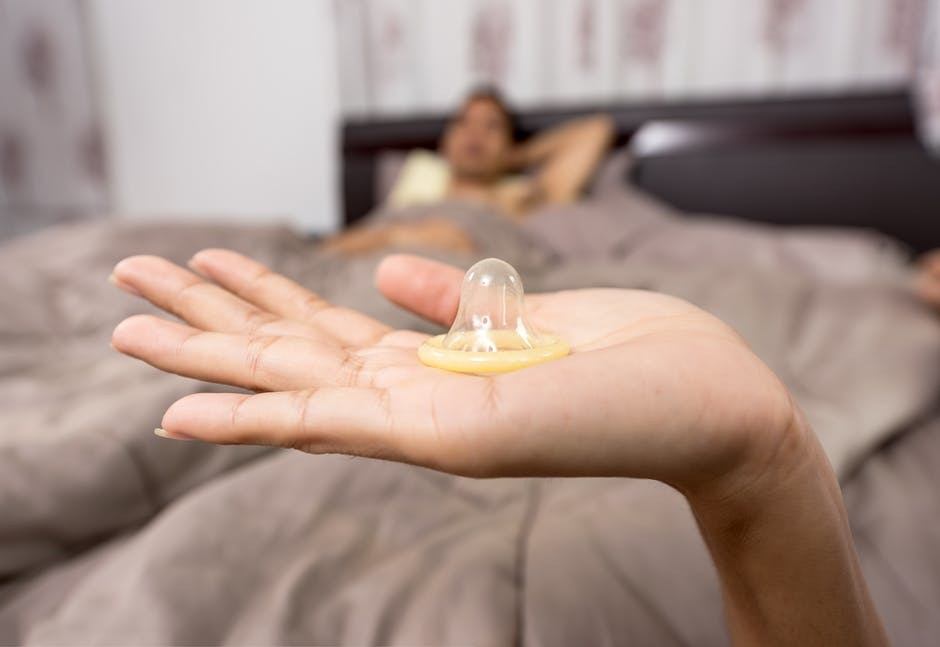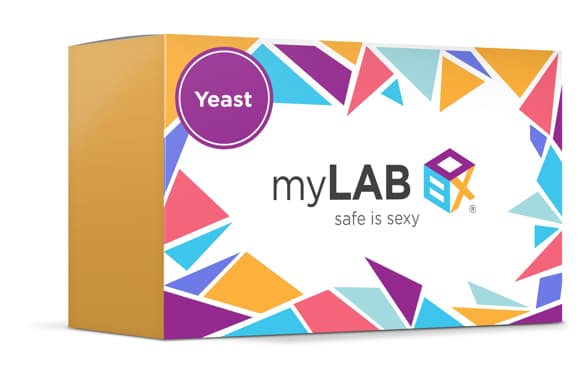Do Condoms Cause Yeast Infections?
Do Condoms Cause Yeast Infections?
If you often suffer from vaginal yeast infections, you may be asking yourself if it may be caused by condoms. There are a few reasons why condoms could cause a yeast infection or yeast infection-like symptoms. Consider the following factors:
- If the condoms that you and your partner use contain Nonoxynol-9, they could actually trigger a yeast infection. This spermicidal lubricant is linked to inducing yeast infections and also to increase your risk of contracting HIV and causing vaginal lesions.
For these reasons Nonoxynol-9, before in widespread use, has been withdrawn from most condoms and lubricants, but it’s also worth checking the ingredient list before buying your condoms. The condoms that definitely don’t contain any Nonoxynol-9 are Durex condoms.

- Another reason why you may be suffering from unpleasant symptoms, such as itching and burning, after a sexual intercourse using a condom may be a latex allergy. In order to test it, you can switch to non-latex condoms and see if your symptoms improve.
- Another reason why condoms may be causing unpleasant symptoms is that they may contain other ingredients that irritate your skin. Those ingredients include glycerin, parabens, and benzocaine. Irritated skin is more prone to micro injuries which in turn create perfect conditions for yeast to thrive and trigger a yeast infection. You can avoid contact with these irritating chemicals by using 100% natural chemical free condoms by Glyde.
- One more thing to consider is anal sex. Make sure that you don’t use the same condom for anal sex and vaginal sex. This way you’ll avoid transmitting fecal bacteria to your vagina. This kind of bacteria can trigger both vaginal yeast infection and bacterial vaginosis.
What Can I do to Cure a Vaginal Yeast Infection Fast?
A vaginal yeast infection is usually easy to treat. The treatment takes 7 days and involves inserting suppositories or cream with an antifungal compound such as Miconazole or Clotrimazole.
One of the most common OTC medications is Monistat 7. It comes with seven applicatorfuls of vaginal cream containing Miconazole.
Monistat 7 an effective and safe way of getting rid of a yeast infection, although some women may suffer an allergic reaction to miconazole involving vaginal itching and burning.
If you suffer from recurrent, difficult to treat yeast infections, try boric acid suppositories. One of the best products of this type is called BoriCap, the manufacturer offers same day shipment to let you start your treatment as soon as possible.
Boric acid treatment usually takes 7 days, you can use the remaining suppositories once a week for up to 6 months to prevent yeast infections from coming back.
How to Prevent Vaginal Yeast Infections?
There are many things you can do to reduce your risk of developing a yeast infection. Apart from choosing the right condoms, make sure you:
- Avoid taking antibiotics, but if you have to take them make sure you take probiotic supplements during your treatment and for at least a week after you finish treatment.
- Avoid drinking coffee and alcohol, they can disturb your vaginal flora making you more vulnerable to infection.
- Having sex more than 7 times a week may lead to micro injuries in your vagina which can help yeast spread and start an infection.
- Don’t wear tight clothes, opt for natural fabrics, such as silk and cotton to enable air to circulate freely between your legs keeping your vaginal area dry and cool.
- If you often go to the swimming pool choose a place that doesn’t use harsh chemicals to sanitize the water, opt for UV-sanitized or ozone-sanitized pools.
Order Your Yeast Infection Test Today

![]() Order online & test at home
Order online & test at home
![]() Collect & mail in your sample in 5 minutes
Collect & mail in your sample in 5 minutes
![]() Get lab-certified results on the go
Get lab-certified results on the go
Order Your Yeast Infection Test Today
Conclusion
While some types of condoms can cause a vaginal yeast infection or vaginal itching and burning, you can easily find condoms that are safe to use.
Experiment with latex free condoms, make sure you avoid those that contain Nonoxynol-9 or other irritating chemicals and you’re bound to find condoms that don’t cause any unpleasant symptoms.
If you still feel that condoms are triggering your yeast infections, consider using a diaphragm, progestin-only contraceptive pills or a contraceptive ring (NuvaRing).
I’d love to hear about your experiences. Please share your opinions and questions in the comment section below.


Thank you so much for this article, I thought condoms were giving me a yeast infection but now I think it’s just an allergy. I didn’t know there were so many different types of condoms to choose from made of different materials. I’ll try using non-latex condoms and see what happens.
Hi Karin, latex allergy is quite common and sometimes you may confuse the symptoms with a vaginal infection. Let us know if switching to non-latex condoms helped. If not, you may want to do a vaginal health test to find out what causes your symptoms.
I would like to know what cause my girlfriend to get yeast infection. We never use condoms.and she is a very clean lady.can a woman get yeast infection by having more than 1 sex partner.example with me we use no protection and with the other sex buddy they use condoms an the lubrication on the condom cause the yeast infection because of her sensitive private part.please reply.
Hi, a woman can get a yeast infection when using condoms, especially if they contain Nonoxynol-9. If she’s allergic to latex or other chemicals used in condoms, it can also make her more prone to infections as her vaginal area becomes irritated. A good solution for that is using non-latex or chemical-free condoms. Lubricants can also cause yeast infections if they contain certain chemicals, such as glycerin, that can trigger an infection. Please check my article about natural sexual lubricants for more information. Vaginal yeast infections happen even in babies, so having many sexual partners is not considered a risk factor. For a full list of possible causes of yeast infections, please check my article about preventing yeast infections. I wish you both all the best!